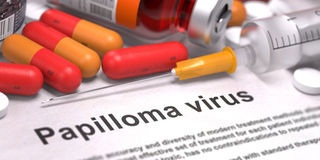Prime
When should one get the HPV vaccine?

The Human Papilloma Virus (HPV), a sexually transmitted virus that causes cervical cancer among women.
What you need to know:
- Around 70 per cent of the cancers of the cervix are caused by Human Papilloma Virus (HPV), a virus mostly transmitted sexually.
I am 21 years old but I have never been vaccinated against cancer of the cervix. Can I get the vaccine? LCK
Dear LCK, cervical cancer, one of the commonest cancers among women in Uganda, occurs in the cells of the lowermost part of the uterus called the cervix.
Around 70 per cent of the cancers of the cervix are caused by Human Papilloma Virus (HPV), a virus mostly transmitted sexually.
The infection can be prevented, among others, through abstaining from sex, immunisation against the causative virus and screening for cervical cancer starting at 21 years of age.
The screening, referred to as a PAP smear, looks for HPV or the cells the virus has infected and changed into those likely to turn cancerous if not treated soon and appropriately.
Around 12 types of HPV are considered high risk for cancer of the cervix but two types (HPV 16 and HPV 18) cause about 70 percent of cervical cancer and are the ones usually immunised against in developing countries, including Uganda.
At 21, if you are not yet sexually active and therefore less likely to have already got HPV infection, getting the vaccine in three doses within six months is possible.
If you are sexually active, a PAP smear and HPV DNA test can be done first and if the tests do not show either precancerous cells or HPV infection then immunisation may be possible.
In Uganda, two doses of HPV vaccine are being given to girls aged between nine and 13 years a time when the girls are not yet exposed to HPV through sexual intercourse.
As you prepare for the tests and vaccine, abstain from sexual intercourse or properly use condoms although these may not wholly protect you from HPV infection.




